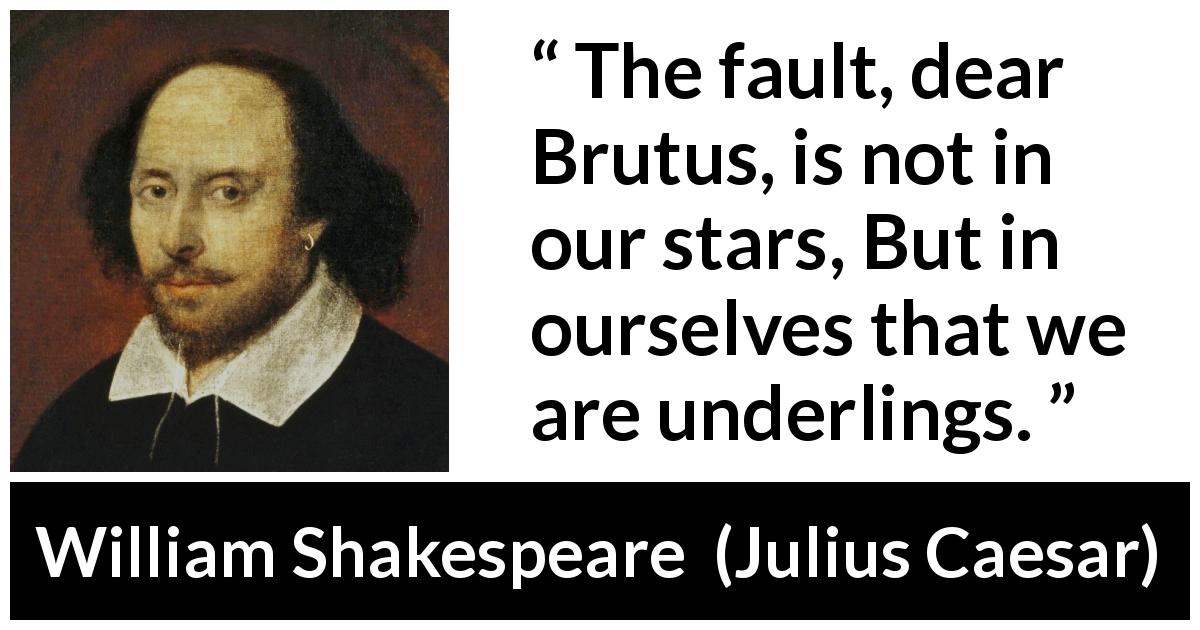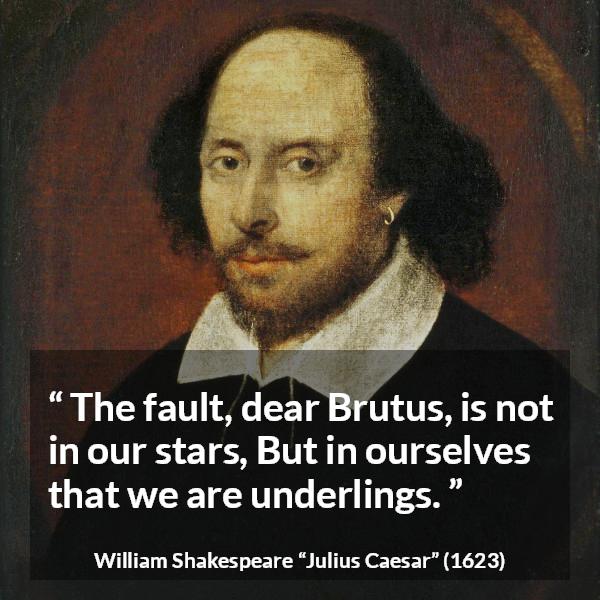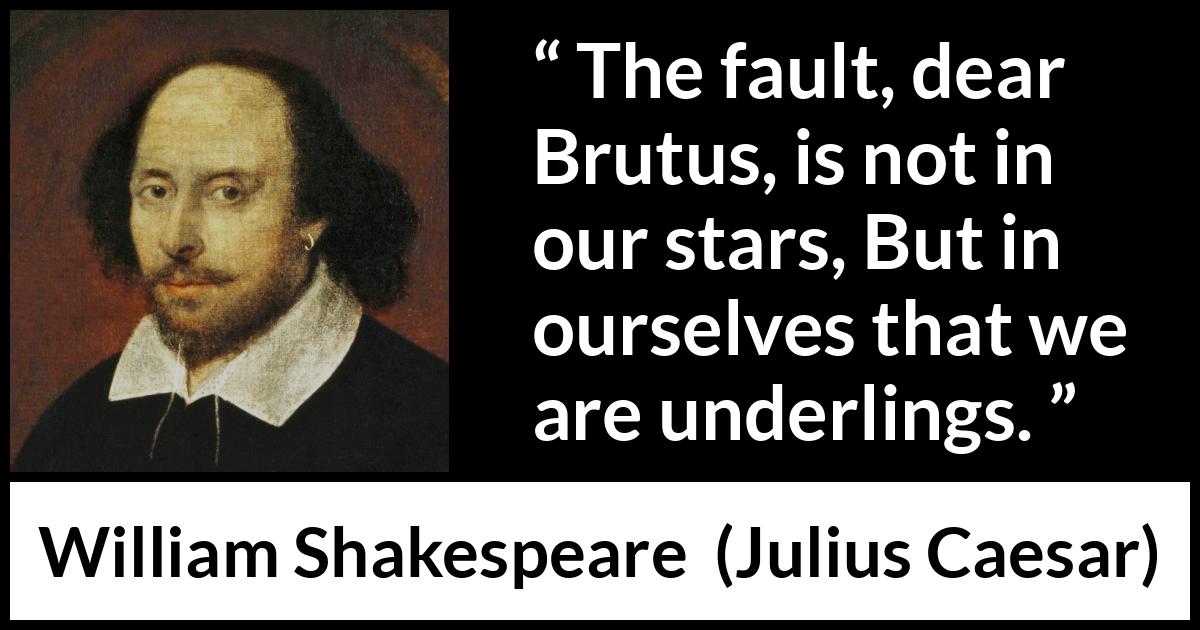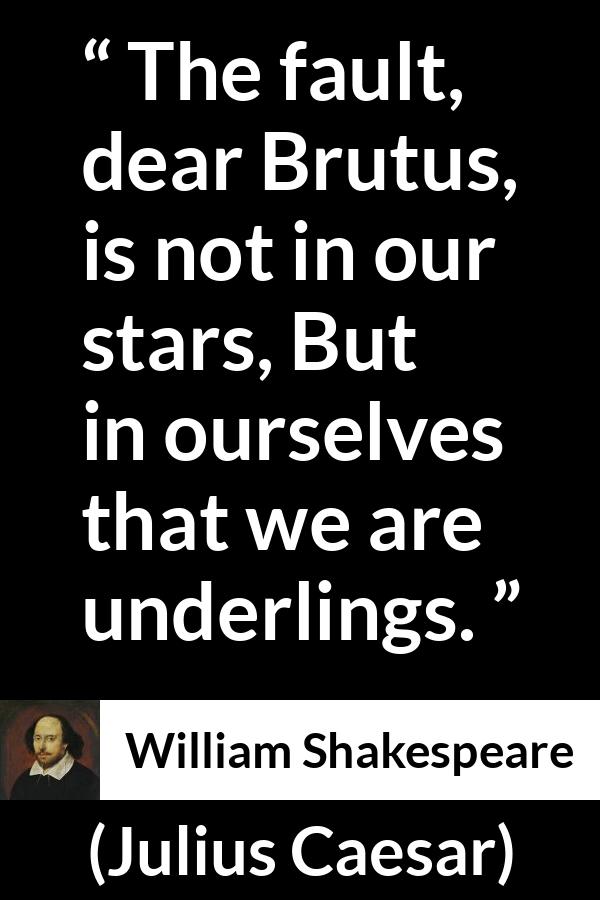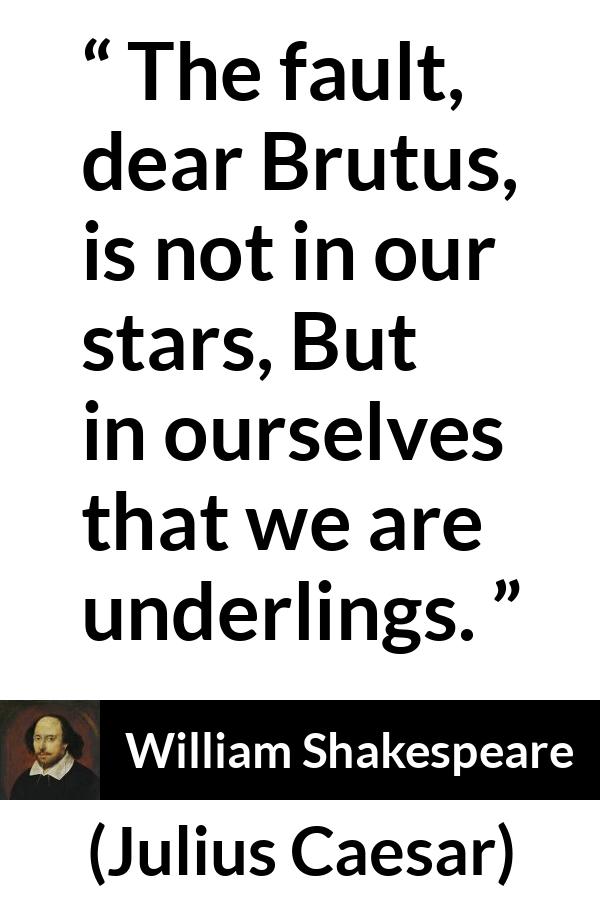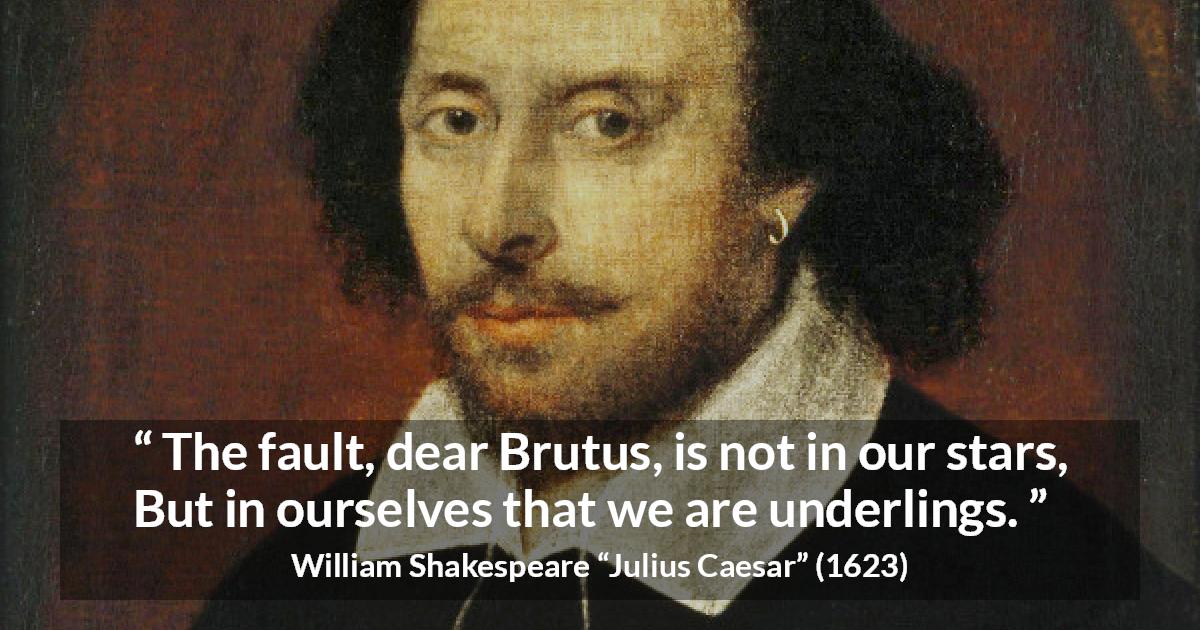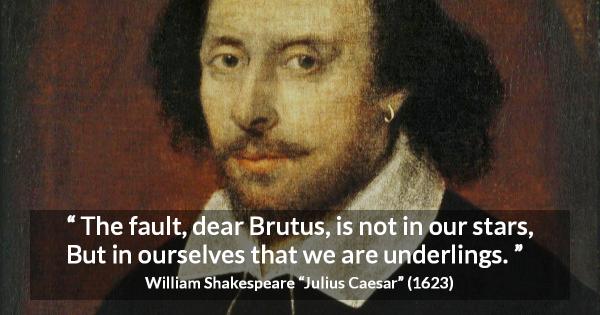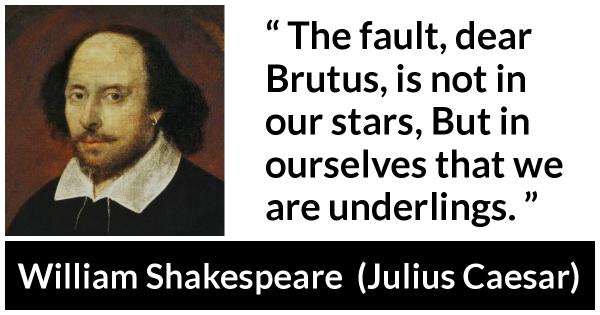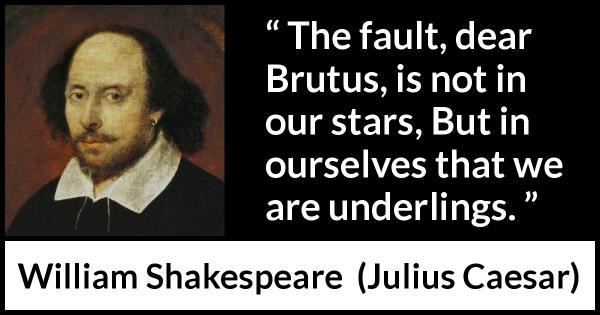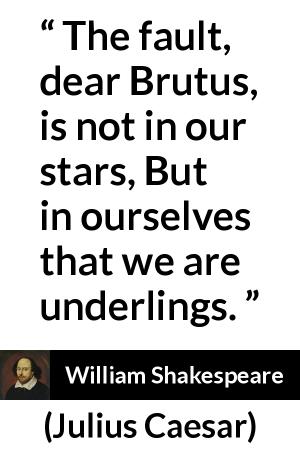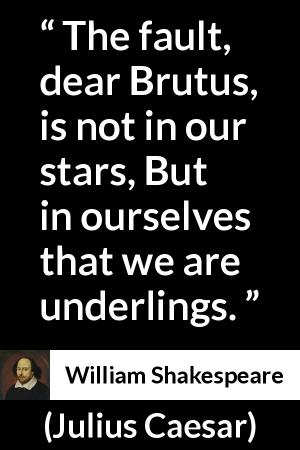“ The fault, dear Brutus, is not in our stars, But in ourselves that we are underlings. ”
William Shakespeare, Julius Caesar (1623). copy citation
| Author | William Shakespeare |
|---|---|
| Source | Julius Caesar |
| Topic | responsibility fate fault |
| Date | 1623 |
| Language | English |
| Reference | The Tragedy of Julius Caesar, Act I, Scene 2 |
| Note | Written in 1599 Cassius line |
| Weblink | http://www.gutenberg.org/cache/epub/1120/pg1120-images.html |
Context
“Why, man, he doth bestride the narrow world
Like a Colossus, and we petty men Walk under his huge legs and peep about To find ourselves dishonorable graves. Men at some time are masters of their fates: The fault, dear Brutus, is not in our stars, But in ourselves that we are underlings. Brutus and Caesar: what should be in that "Caesar"? Why should that name be sounded more than yours? Write them together, yours is as fair a name; Sound them, it doth become the mouth as well; Weigh them, it is as heavy; conjure with 'em,” source
Like a Colossus, and we petty men Walk under his huge legs and peep about To find ourselves dishonorable graves. Men at some time are masters of their fates: The fault, dear Brutus, is not in our stars, But in ourselves that we are underlings. Brutus and Caesar: what should be in that "Caesar"? Why should that name be sounded more than yours? Write them together, yours is as fair a name; Sound them, it doth become the mouth as well; Weigh them, it is as heavy; conjure with 'em,” source
Meaning and analysis
Kwize Master
Cassius tries to convince Brutus of the threat that Julius Caesar represents for the good of the people. Brutus is torn between his friendship for Caesar and his duty to the Republic. Finally, Cassius claims that they have their fate in hand, that they are men like Caesar and that it is up to them to fulfill their destiny through their own decisions.
useful
useless
